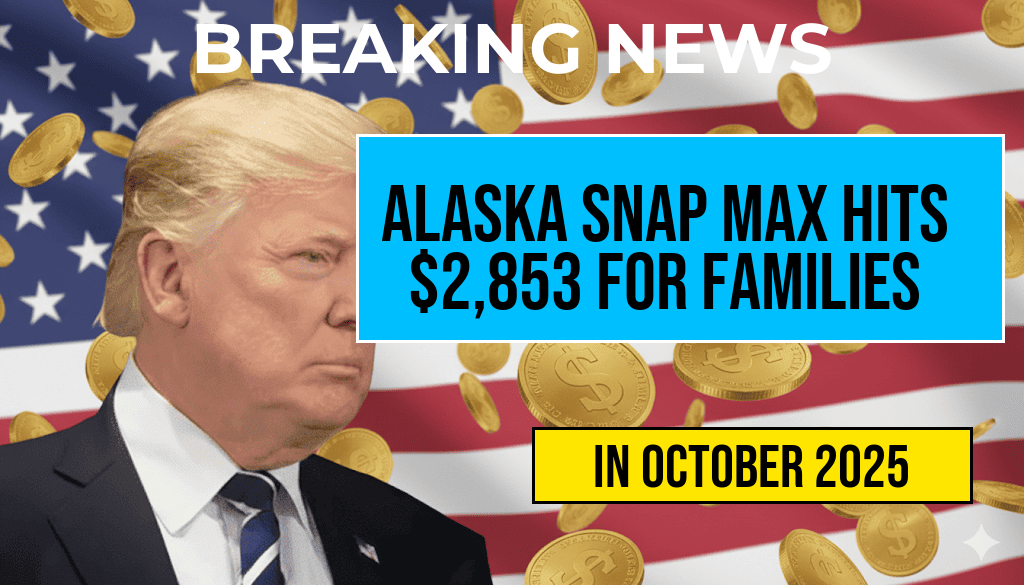The Internal Revenue Service (IRS) has released its updated income brackets for retirees for the 2026 tax year, which could enable many seniors to save over $500 annually. As inflation continues to impact living costs, these adjustments aim to provide financial relief for those relying on fixed incomes. The new thresholds will affect how much income retirees can earn before facing higher tax rates, creating opportunities for strategic financial planning. With careful consideration, retirees can potentially maximize their savings and maintain a comfortable lifestyle during their golden years.
What Are the New Income Bracket Changes?
The adjustments for 2026 reflect the IRS’s annual review of inflation and cost-of-living factors. Here’s a breakdown of the revised income brackets for retirees:
| Tax Rate | Income Threshold |
|---|---|
| 10% | Up to $11,000 |
| 12% | $11,001 – $44,725 |
| 22% | $44,726 – $95,375 |
| 24% | $95,376 – $182,100 |
| 32% | $182,101 – $231,250 |
| 35% | $231,251 – $578,125 |
| 37% | Over $578,125 |
Impact on Retirees
For many retirees, the new tax brackets signify an opportunity to retain more of their hard-earned savings. By adjusting the thresholds, the IRS is allowing seniors to potentially earn more without incurring additional tax burdens. This change is especially beneficial for those whose income derives from pensions, Social Security, or part-time work.
- Increased Savings: Seniors who manage their incomes strategically can take advantage of the lower tax rates.
- Improved Quality of Life: By keeping more income, retirees can allocate funds towards healthcare, housing, and leisure activities.
- Long-term Financial Planning: Understanding the new brackets allows retirees to make informed decisions regarding withdrawals from retirement accounts.
Planning for 2026
Retirees should consider several strategies to optimize their financial situation in light of the new income brackets. Here are some tips:
- Diversify Income Sources: Relying solely on Social Security might limit financial flexibility. Exploring part-time work or investment income can help maximize earnings.
- Monitor Withdrawals: Carefully planning withdrawals from tax-deferred accounts can help keep taxable income within lower brackets.
- Consult a Financial Advisor: Professional guidance can provide personalized strategies that align with individual retirement goals.
Future Considerations
As the IRS continues to adjust income brackets, retirees must stay informed about future changes that could further impact their financial situations. Monitoring inflation trends and potential tax reforms will be essential in maintaining financial health during retirement.
For further information about the IRS’s updated tax brackets, visit the IRS website. Additionally, for insights into how these changes affect retirement planning, consider checking resources from financial experts at Forbes.
Understanding the new income thresholds for 2026 will empower retirees to make informed decisions that can lead to significant savings. With these adjustments, the IRS aims to enhance the financial well-being of seniors across the nation.
Frequently Asked Questions
What are the new income bracket adjustments for retirees in 2026?
The new income bracket adjustments for retirees in 2026 will increase the thresholds for various tax brackets, potentially providing significant savings for individuals with fixed incomes.
How much can retirees potentially save with the new adjustments?
Retirees could see savings of over $500 due to the updated income thresholds, which may allow them to pay a lower percentage of their income in taxes.
Why are income brackets adjusted annually?
Income brackets are adjusted annually to account for inflation and changes in the cost of living, ensuring that retirees are not unfairly taxed due to rising incomes over time.
Who will benefit the most from the 2026 income bracket adjustments?
Retirees with fixed incomes, particularly those nearing the current threshold limits, will benefit the most from the 2026 income bracket adjustments as they may find themselves in lower tax brackets.
How can retirees prepare for the upcoming tax changes in 2026?
Retirees should review their current income sources and consult with a financial advisor to understand how the upcoming tax changes will affect their overall financial strategy in 2026.






